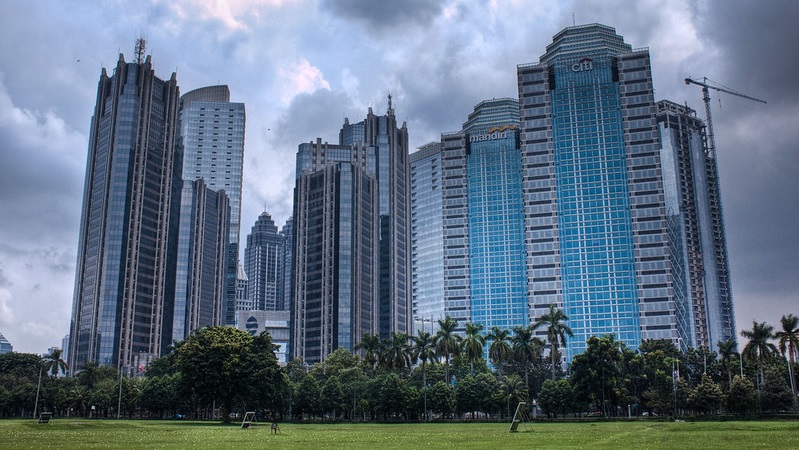Since President Widodo launched Indonesia’s exchange two months ago, there’s been barely any trading of carbon credits
In September, Indonesia’s President Joko Widodo opened the country’s first carbon exchange IDX Carbon, declaring “this is Indonesia’s real contribution to fight with the world against climate crisis”.
In the launch video, a calm female voice makes a plea over jangly guitar. “Join us to accelerate net zero with more transparency, liquidity and efficiency,” she says, as a headless businessman fondles a hologram of a globe.
Two months on, this call has been largely ignored. Climate Home’s analysis of trading data suggests most days see no trading at all.
Carbon credit traders and experts blamed a lack of incentives to buy, administrative mistakes and muddled government priorities.
A divisive solution
A carbon exchange allows the trade of carbon credits. One company takes carbon dioxide out of the atmosphere and another pays to take credit for it.
Carbon credit supporters argue they are a way of financing climate action which wouldn’t otherwise take place while critics say their real-world benefits are overstated and they offer polluters an excuse to keep emitting.
The European Union and China’s exchanges are among the biggest in the world. President Widodo predicted in September that Indonesia’s could soon rival them.
Shades of green hydrogen: EU demand set to transform Namibia
But the exchange has got off to a very slow start. Of the 19 trading days that Climate Home was able to obtain data for, there was no trading on 17 days.
This data was gleaned from IDX statements and from some of its daily reports, which regularly vanish from its website. IDX did not respond to repeated requests for the full data.
The price of carbon has remained the same since the launch, suggesting it is an inactive market.
Low demand
Demand for the credits is low. This is reflected by the price of carbon – just RP 69,600 ($4.50) per tonne of carbon dioxide.
Demand could be boosted if Indonesia implements a scheme to cap company's emissions and tax them on any excess.
The idea is to allow them to avoid tax by buying another company's unused emissions allowance or by buying carbon credits.
The government initially suggested a tax would be set up in 2022 but now says it will be set up next year or the year after, saying carbon markets must be set up first.
France, Kenya set to launch Cop28 coalition for global taxes to fund climate action
The voluntary market has been launched and the compliance market will begin next year, when the cap and tax is piloted on coal-fired power plants.
The government has given out mixed messages on the extent to which companies will be able to buy voluntary credits to cover their cap and tax obligations. The energy ministry wants a limited role, while the environment ministry wants a more expansive one.
Suppliers kept out
All that has dampened domestic demand and the regulations to allow foreign companies to buy credits have yet to be put in place.
Dessi Yuliana is the director of CarbonX, a company which buys and sells credits. She told Climate Home that this is because of pending international trading regulations and divided priorities in the government.
While some groups in government are keen to attract foreign investment the main administrati
Read More

